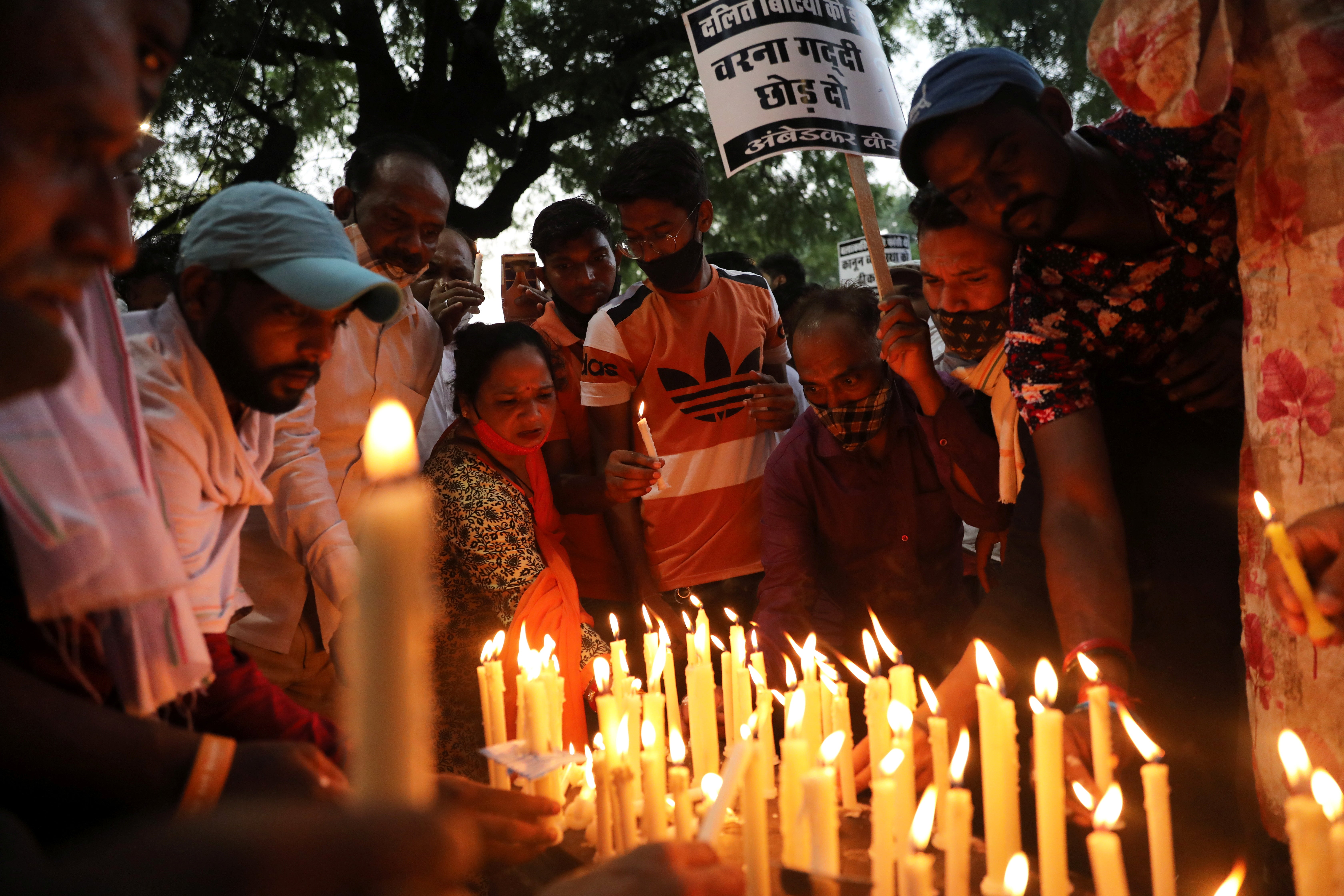Four charged with rape and murder of 9-year-old in India
A Hindu priest and three crematorium workers could face the death penalty if found guilty

Four men, including a Hindu priest have been charged with the rape and murder of a 9-year-old girl in India.
The young girl, who belonged to the Dalit community, the most oppressed group in Hinduism’s caste-based social hierarchy, was allegedly attacked on 1 August in the Nangal area of Delhi.
Ingit Pratap Singh, a senior police official told CNN that he believes the victim was attacked by the priest and other crematorium workers when she went to fetch water from the crematorium near her home.
He said that the girl’s mother was called to the crematorium by the priest, who showed her the body of her dead daughter. Allegedly, the priest told the woman that her child had been accidentally electrocuted near the water tap.
In her statement to the police, the woman said that the priest and crematorium employees told her that if she reported her daughter’s death to the police, doctors conducting the autopsy would remove her daughter’s organs and sell them.
Eventually, she told the police, that the priest convinced her to cremate her daughter’s body at the crematorium.
Around 200 villagers heard the mother’s cries and came to the crematorium. Upon hearing her say that she suspected her daughter had been raped, they intervened, began to extinguish the funeral pyre, and pulled the child’s charred remains from it.
But doctors who conducted a post-mortem exam on the remains were unable to determine the cause of death because of the damage caused by the fire.
Outraged, the villagers gathered and demanded justice, and were joined by hundreds of protesters across New Delhi, calling for accountability for the girl’s death.
On 2 August, the four men from the crematorium were arrested. They remain in police custody and following the filing of a 400-page charge sheet – citing scientific and technical evidence –they were formally charged with rape, murder and the destruction of evidence on Saturday.
The case is set to be heard by a district court on Tuesday and will then be sent to a fast-track court. If found guilty, the men could face the death penalty.
While the speed at which the judicial system is pursuing charges against the men, rape remains an urgent problem in India, particularly among “lower caste” groups.
According to India’s National Crime Records Bureau, in 2019 more than 32,000 rapes were reported across the country, but activists believe the true figure to be much higher, due to limited reporting out of fear and stigma. And data released by the country’s Ministry of Home Affairs showed that in 2018, on average, a rape was reported every 15 minutes.
The situation is even more bleak for disadvantaged groups, like the country’s Dalit community.
Although India officially abolished the caste system in 1950, the roots of the social hierarchical system run deep in the predominantly Hindu nation. The system organises Hindus at birth, defining their social trajectory – who they can marry, what jobs they can do, and their overall place in society.
The Dalit community comprise 201 million people in India and have previously been referred to as “untouchables”. They continue to experience significant discrimination, violence, and high rates of sexual assault.
A 2020 report from non-governmental organisation Equality Now found that sexual violence is used by dominant societal groups to oppress Dalit women and girls.
The organisation has called on the government to enhance accountability and effective law enforcement practices in order to protect caste-based minorities from ongoing harm.
Join our commenting forum
Join thought-provoking conversations, follow other Independent readers and see their replies
Comments
Bookmark popover
Removed from bookmarks